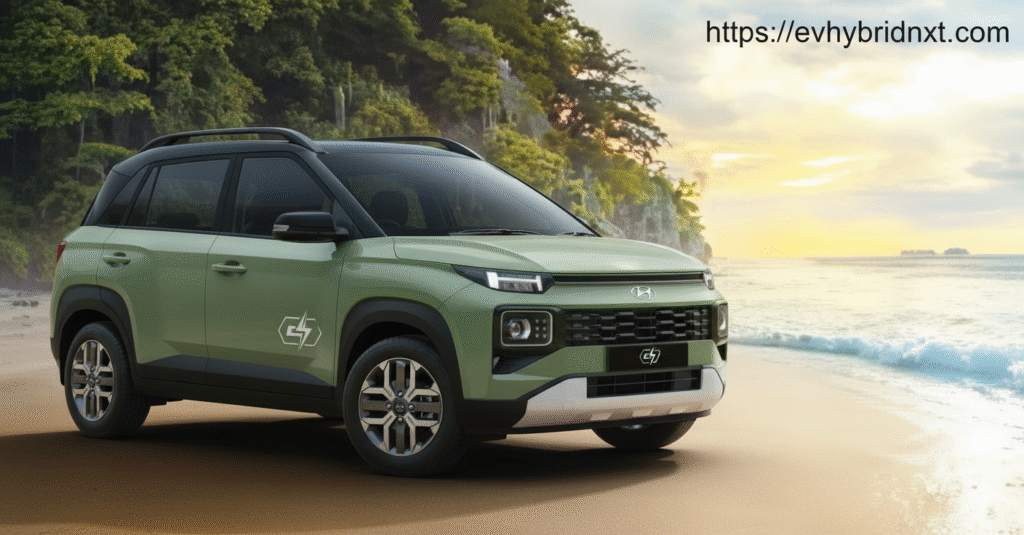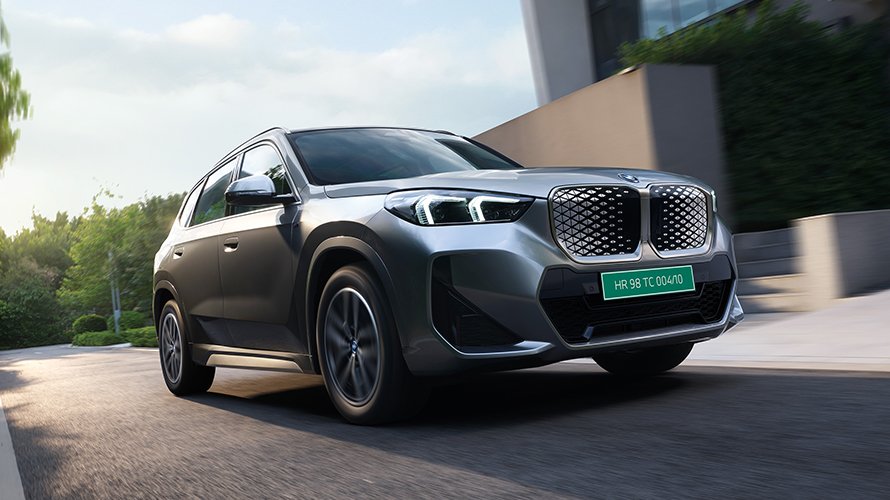In a bid to capture India’s burgeoning entry-level electric vehicle (EV) market, Hyundai Motor India is reportedly mulling an affordable EV variant of its popular micro-SUV, the Exter. Priced aggressively under ₹10 lakh, this sub-compact EV would slot below the anticipated Venue EV, targeting budget-conscious urban commuters and first-time EV adopters amid a surge in demand for green mobility. Sources close to evhybridnxt.com indicate that while the project has been under internal deliberation for months, its greenlight hinges on the market reception of the Venue EV, slated for a 2026 launch.
The Exter EV would leverage the existing platform of the petrol-powered Exter, which has sold over 1.2 lakh units since its 2023 debut, thanks to its punchy 1.2-litre engine, spacious cabin, and feature-rich appeal starting at ₹6 lakh. Transitioning to electric, it could house a compact 20-30 kWh battery pack, delivering a real-world range of 250-300 km—ideal for city errands and short highway jaunts. Expect Hyundai’s signature tech like a 10.25-inch touchscreen, wireless charging, and Level 2 ADAS, all wrapped in the Exter’s rugged, boxy aesthetics with EV-specific tweaks such as aerodynamic wheels and a closed grille.
This strategic pivot aligns with Hyundai’s aggressive EV roadmap for India, where the company aims for 30% electrified sales by 2030 under its ‘Ioniq on Demand’ vision. The Venue EV, a more premium offering with a projected 350+ km range and starting price around ₹12-15 lakh, is already in advanced prototyping, with test mules spotted on Indian roads sporting battery cooling vents and charging ports. However, insiders reveal that Hyundai’s brass is closely monitoring Venue EV’s pre-launch buzz and early orders. “If the Venue cracks the mid-size EV code with strong uptake, the Exter EV gets the nod to democratize access further,” a source familiar with the matter told evhybridnxt.com. A tepid response, conversely, could shelve the sub-₹10 lakh play in favor of hybrid reinforcements.
India’s EV passenger vehicle sales hit 90,000 units in the first seven months of 2025—a 45% YoY jump—but the sub-₹10 lakh segment remains a barren frontier, dominated by ICE holdouts like the Maruti Alto K10 and Tata Tiago. With battery costs dipping 20% globally to $100/kWh, and FAME-III subsidies offering up to ₹1.5 lakh per vehicle, the timing is ripe. Hyundai’s move would pit the Exter EV against nascent rivals like the Tata Punch EV (₹10.99 lakh) and MG Comet EV (₹7 lakh), potentially undercutting them on brand trust and service reach via Hyundai’s 1,300+ nationwide outlets.
Challenges abound: Squeezing profitability at sub-₹10 lakh requires localized battery production, possibly via Hyundai’s Tamil Nadu Gigafactory JV with LG Energy Solution, ramping to 10 GWh by 2027. Regulatory nods for fast-charging compatibility and dust-proofing for Indian roads are also key hurdles. Yet, success here could catapult Hyundai’s EV share from 5% to 15% in the entry segment, echoing the Creta’s dominance in petrol SUVs.



